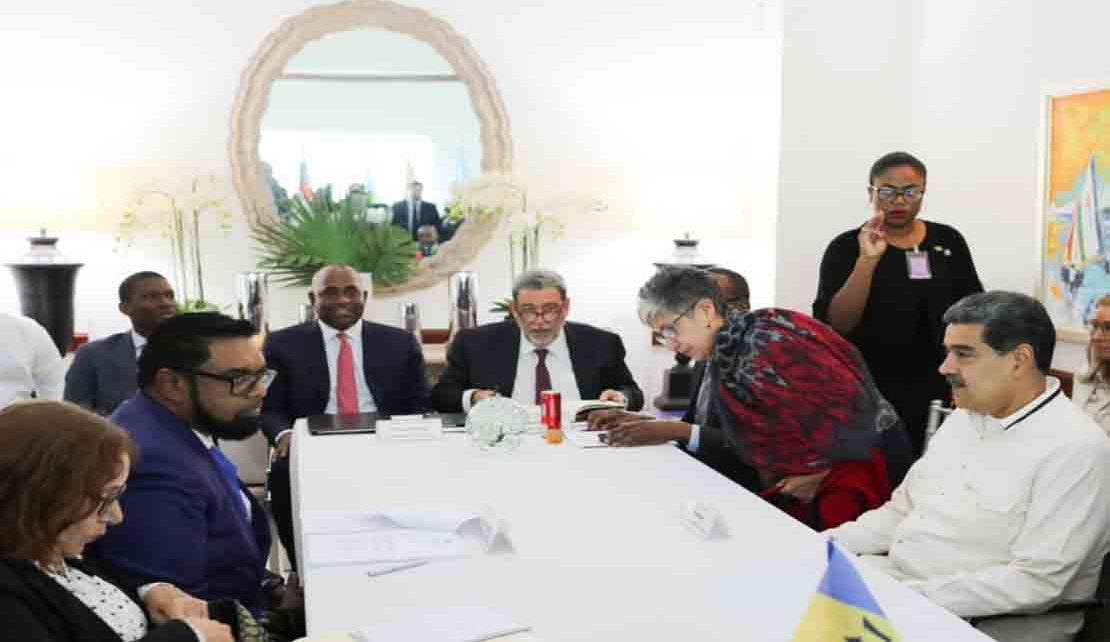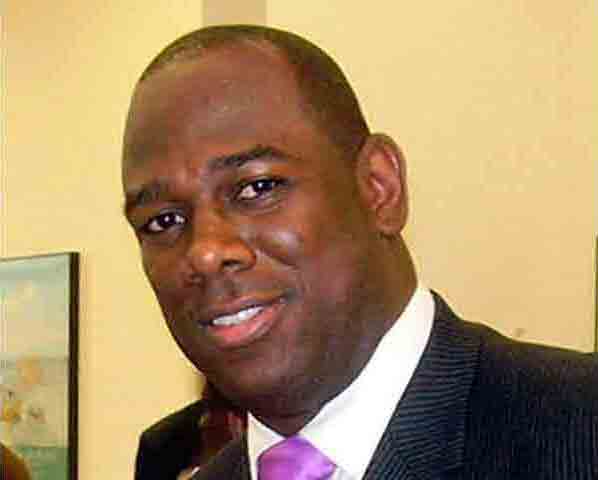GUYANA | The Ali-Maduro Argyle Declaration Reverses Guyana's Long Standing foreign policy of Non-Appeasement says Rickford Burke's CGID

While many persons from across the Region have hailed the Argyle declaration as a step in the right direction in having the Caribbean and Latin American region remaining a zone of peace despite the Guyana-Venezuela border dispute, The Caribbean Guyana Institute for Democracy (CGID) thinks otherwise.
A Statement from Rickford Burke of the CGID, believes some of the concessions in the Argyle Declaration are prejudicial to Guyana.
According to Burke, The failure of the agreement to also bind and constrain Venezuela to respect, and take no action to infringe on, Guyana’s territory is consequently an unfortunate and significant defect in the agreement.
Burke has thrown cold water on the decision to set up a joint Guyana/Venezuela Border Commission to deal with matters agreed to between the two countries and for the two Presidents to meet again in Brazil in three months.
He pointed out that A similar joint Guyana/Venezuela Border Commission was established in 1966 pursuant to the Geneva Agreement. However, he said that commission failed because of the intransigence of Venezuela.
The following is the full text of the CGID Statement:

(ii) While Paragraph (1) enjoins Guyana and Venezuela from directly or indirectly threatening or using force against one another in any circumstances, including those consequential to any existing controversies between the two States, it must be acknowledged that it is Venezuela that is engaged in aggression and bellicosity towards Guyana, and has threatened to use force to annex Guyana’s territory, Essequibo. The failure of the agreement to also bind and constrain Venezuela to respect, and take no action to infringe on, Guyana’s territory is consequently an unfortunate and significant defect in the agreement.
(iii) Although the Guyana-Venezuela border controversy is currently subjudice at the International Court of Justice (ICJ) for a final determination on the validity of the 1899 Parris Arbitration Award, and, notwithstanding over fifty years of direct talks with Venezuela, pursuant to the Geneva Agreement of 1966, has produced no resolution, the President of Guyana in accord with the dictates of Maduro and his Caribbean Heads of Government partners, agreed to depart from the Geneva Agreement which made the United Nations Secretary General the principal decision maker on the mechanism for engagement and a resolution of the manufactured border controversy.
(iv) Instead, President Ali jointly agreed with President Maduro to appoint Prime Minister Ralph Gonsalves, of St Vincent and the Grenadines, and an obvious agent of Maduro, as a new Good Officer/interlocutor, contrary to the Geneva Agreement. The United Nations Secretary has now been reduced to an observer in this new process. This is unacceptable! In accordance with the Geneva Agreement, the UN Secretary General or his designee, must always have governing powers of any mechanism to manage or resolve the controversy.
(v) President Ali also agreed to set up another Joint Guyana/Venezuela Commission to discuss matters agreed to between the two countries and for the two Presidents to meet again in Brazil in three months. A similar joint Guyana/Venezuela Border Commission was established in 1966 pursuant to the Geneva Agreement. However, said commission failed because of the intransigence of Venezuela.
(vi) Similarly, there were protracted high-level talks for fifty-seven years under the egis and good offices of the UN Secretary General which failed as well. Why is Ali taking Guyana back to a process that was explored fifty-seven years ago and failed, especially since the UN Secretary General has declared these modalities have been exhausted and as a last resort, referred the matter to the ICJ for a final resolution in accordance with international law?
(vii) Every mechanism stipulated in the Geneva Agreement to resolve this controversy has been exhausted between 1966 and 2015. This is precisely why the UN Secretary General referred the controversy to the ICJ for final determination. The utility of more face-to-face talks and border commissions at this juncture is therefore a preposterous exercise in futility.
(viii) Most worrying is the fact that the agreement fails to compel Maduro to revert to status quo ante; including reversing his belligerent and bellicose actions, repudiate plans to license companies to begin mining in Essequibo and exploring for oil, and other reckless acts that violate Guyana’s sovereignty and threaten peace and security of the region.
(ix) President Ali's decision to revert this conflict to its 1966 status makes abundantly clear that Paragraphs 2 and 4 are wins for Maduro and Venezuela. Essentially, the border controversy has restarted with different mediators. Maduro last year wrote off $190 million dollars of St, Vincent and the Grenadines’ oil debt to Venezuela at the behest of Prime Minister Ralph Gonsalves, who demonstrates that he has a profitable benefit in his new role.
(x) This is a disappointing outcome to an ill-conceived process. Ali has been outmaneuvered by Maduro and his friends.
Rickford Burke
President
Caribbean Guyana Institute for Democracy (CGID)
December 14, 2023
